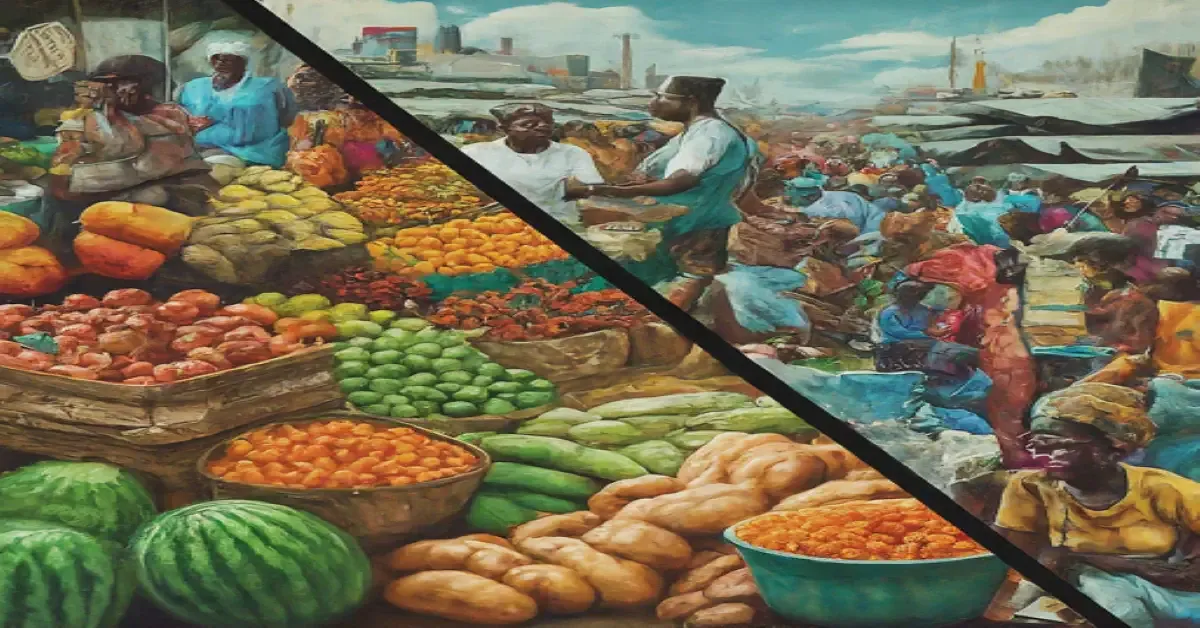Nigeria's latest inflation report for January 2024
shows a headline inflation rate of 29.90%, which is an increase from the 28.92%
recorded in December 2023. This indicates that the average price of goods and
services in Nigeria increased by 29.90% compared to the same month in the
previous year.
Here are some key points from the report:
Food inflation:
The food inflation rate was 35.41%,
significantly higher than the headline rate. This highlights the rising cost of
essential food items in the country.
Month-on-month inflation:
Inflation also increased
slightly on a month-on-month basis, from 2.29% in December 2023 to 2.64% in
January 2024.
Impact on cost of living:
This rising inflation rate
continues to put pressure on Nigerians' cost of living, making it more
expensive to afford basic necessities.
Nigerians Cry for Food Relief: Will Imports Ease the Pain?
What has the Nigerian government done or is doing to
fight inflation and hunger in the land as Nigerians continue to grapple with
food crises and uncertainties? The importation debate heats up as OPS, PresidentTinubu rejects food imports, instead sets to clampdown on hoarders around the
country.
While the government and stakeholders bicker over the
immediate and long-term solution to Nigeria’s dilemma, citizens will continue
facing the growing food crisis, with rising inflation hitting a record high of
29.90%. This has resulted in skyrocketing prices for essential food items,
pushing millions towards hunger and sparking a heated debate on how to address
the situation.
Calls for Importation Grow:
Many Nigerians, including consumers, businesses, and
even some agricultural stakeholders, are urging the government to allow more
food imports. They argue that increasing supply through imports would
immediately lower prices and improve access to food. Proponents believe this is
crucial for providing short-term relief and stabilizing the market.
Government Resists, Focuses on Clampdown Hoarding:
Despite the clamour, the government has so far resisted
calls for increased food imports, insisting that Nigerians can feed themselves.
Their stance emphasizes self-sufficiency and protecting local farmers. They
believe imports could hurt domestic production and discourage investments in
agriculture, making Nigeria more vulnerable to external shocks. Instead, their
strategy focuses on clamping down on food hoarding, which they believe is
artificially inflating prices. Committees have been formed to investigate and
punish hoarders, but the effectiveness of these measures remains under
scrutiny.
Inflation Paints a Grim Picture:
The latest inflation report paints a worrying picture.
Food inflation, at 35.41%, significantly outpaces the headline rate, highlighting
the dire situation for basic necessities. While the month-on-month inflation
slowed slightly, overall rising prices continue to squeeze Nigerians' wallets,
making it increasingly difficult to afford basic necessities.
Debate Simmers:
The debate on the best approach rages on. Supporters of the government's stance argue that long-term sustainability and food security depend on fostering domestic production and cracking down on hoarding addresses a key market distortion. Critics, however, counter that the current approach fails to provide immediate relief, potentially worsening food insecurity in the short term. They also question the effectiveness of tackling hoarding without addressing deeper structural issues in the market.
Ultimately, there is no easy solution to Nigeria's food crisis. The effectiveness of any approach depends on its design, implementation, and the broader context of the country's agricultural sector and economy. Finding a solution that balances immediate needs with long-term sustainability remains a crucial challenge for the Nigerian government.












.webp)


0 Comments